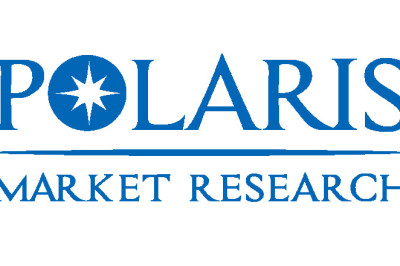views
How Organic Mushroom Extracts Are Reshaping Wellness Habits
Introduction
Consumers are increasingly drawn to mushroom-based products for their purported immune-boosting, cognitive-enhancing, and anti-inflammatory properties. With rising awareness about adaptogens and the benefits of functional fungi, demand for organic mushroom extracts continues to expand across demographics.
According to Marketintelo, “The global Agricultural Machinery Market size was valued at approximately USD 932.6 million in 2024 and is projected to reach USD 1.73 billion by 2032, growing at a compound annual growth rate (CAGR) of 8.1% during the forecast period 2024–2032.”
Read Full Research Study – https://marketintelo.com/report/organic-mushroom-extract-market
Why Organic Mushroom Extracts Are Gaining Traction
Rise of Holistic Wellness and Natural Remedies
There’s been a global shift toward preventive healthcare and natural alternatives. As consumers become more conscious of what they consume, they’re turning to ingredients with long histories of medicinal use—like Reishi, Lion’s Mane, and Chaga mushrooms.
These mushrooms, when processed into concentrated organic extracts, provide bioactive compounds that may help regulate stress responses, improve focus, or support gut health. The move away from synthetic supplements is driving more consumers toward products that are USDA-certified organic, sustainably sourced, and third-party tested.
As per Dataintelo’s analysis, “The regional distribution of the Organic Mushroom Extract Market reflects varying consumer preferences, market shares, and growth rates. For instance, Europe accounted for approximately 27% of the market share in 2024, generating close to USD 251 million.”
Read Full Research Study – https://dataintelo.com/report/organic-mushroom-extract-market
Increased Integration in Food, Beverage, and Skincare
The versatility of mushroom extracts has led to their inclusion in a wide range of product categories. Coffee substitutes made with Lion’s Mane are marketed as brain-boosting beverages, while Reishi-infused teas promote relaxation and immunity.
In the skincare industry, Tremella mushroom extract is used for its hydration and antioxidant properties. Meanwhile, cordyceps extracts are incorporated into energy drinks and fitness supplements to support endurance and oxygen uptake.
Food producers are also exploring savory applications—like sauces and snacks infused with Umami-rich mushroom extracts—as consumers seek functional benefits alongside taste.
Types of Popular Organic Mushroom Extracts
Reishi (Ganoderma lucidum)
Known as the "mushroom of immortality," Reishi has been used in traditional Chinese medicine for centuries. It’s believed to support immune function, reduce stress, and aid sleep. Organic Reishi extract is commonly found in capsules, tinctures, and adaptogenic blends.
Lion’s Mane (Hericium erinaceus)
Highly valued for its neuroprotective properties, Lion’s Mane is used to promote focus, memory, and cognitive health. It is often consumed in powder form or as a coffee alternative due to its mild, slightly nutty flavor.
Chaga (Inonotus obliquus)
Chaga grows on birch trees and is rich in antioxidants, particularly melanin and polyphenols. It’s favored for its anti-inflammatory and immune-modulating effects. Organic Chaga extract is frequently consumed as a tea or incorporated into smoothie mixes.
Cordyceps (Cordyceps militaris)
Cordyceps is often associated with increased stamina and energy, making it a common ingredient in athletic performance supplements. It’s one of the few mushrooms known to improve oxygen utilization and aerobic capacity.
Turkey Tail and Maitake
Both are used for their immune-boosting benefits. Turkey Tail is particularly rich in polysaccharopeptides (PSPs) that support gut and immune health, while Maitake contains beta-glucans linked to blood sugar regulation.
Clean Label Demand and Extraction Standards
Consumers are not only seeking organic products—they’re also demanding transparency in sourcing and processing. For organic mushroom extracts to meet certification standards, they must be grown without synthetic fertilizers, pesticides, or GMOs.
Extraction methods also matter. Dual-extraction techniques using both water and alcohol are now widely adopted to draw out both water-soluble (e.g., polysaccharides) and fat-soluble (e.g., triterpenes) compounds. This ensures maximum potency and efficacy.
Brands are increasingly showcasing:
-
Non-GMO certification
-
Third-party lab testing
-
Full-spectrum vs. isolated extracts
-
Fruiting body vs. mycelium sourcing
Role of E-commerce and Direct-to-Consumer Channels
The mushroom extract market has flourished on digital platforms, where educational content, customer testimonials, and influencer marketing help break down the science behind functional mushrooms. Wellness bloggers, naturopaths, and fitness influencers often spotlight mushroom-infused products as part of daily routines.
Direct-to-consumer (DTC) brands benefit from offering subscription models, sample packs, and customization features based on user goals—like stress reduction, cognitive clarity, or athletic performance.
E-commerce also enables companies to highlight lab results, extraction processes, and ingredient traceability—features that modern wellness consumers prioritize.
Regional Market Dynamics
North America
The North American market, particularly the U.S., leads in both demand and innovation. Consumers are well-versed in functional nutrition and are willing to pay premiums for certified organic, clean-label products. Retailers like Whole Foods and Thrive Market prominently feature mushroom extracts in supplements and pantry staples.
The growing number of people practicing mindfulness, meditation, and biohacking has increased interest in cognitive-enhancing fungi like Lion’s Mane and Cordyceps.
Europe
In Europe, awareness is growing due to increased regulatory support for herbal and organic supplements. Countries like Germany, the UK, and the Netherlands are showing strong adoption, especially among vegan and plant-based communities.
In some European markets, mushroom extracts are incorporated into homeopathic and naturopathic formulations, aligned with a broader trend toward plant-based medicine.
Asia-Pacific
Asia-Pacific countries, particularly China, South Korea, and Japan, have a deep-rooted history of using medicinal mushrooms. These regions are not only consumers but also major producers of organic mushroom extracts. However, growing domestic demand for certified organic and export-quality extracts is changing the supply landscape.
Rising middle-class health awareness in Southeast Asia is also creating new opportunities for local and imported mushroom-based products.
Supply Chain Considerations and Quality Control
The surge in demand has placed pressure on organic-certified farms and reliable extraction facilities. A key challenge is ensuring consistency and purity across batches, especially as raw material sourcing expands globally.
Concerns about adulteration—such as the use of mycelium grown on grain instead of fruiting body—have led some companies to invest in transparency protocols, including:
-
DNA verification
-
Batch-level testing
-
Blockchain-based traceability
Manufacturers must also comply with FDA and EFSA regulations concerning labeling and health claims, which limits how benefits are marketed and necessitates robust documentation.
Competitive Landscape
The market features a mix of established supplement companies, niche startups, and contract manufacturers. Differentiation often hinges on quality, transparency, and education.
Key players include:
-
Host Defense (Founded by mycologist Paul Stamets)
-
Om Mushroom Superfood
-
Four Sigmatic
-
Real Mushrooms
-
Mushroom Revival
-
Gaia Herbs
-
NOW Foods
These brands often engage in research partnerships, publish lab results, and develop product lines catering to specific health goals.
Looking Ahead
The organic mushroom extract space is expected to evolve toward more personalized and clinically validated formulations. With ongoing research into the gut-brain axis, immune modulation, and adaptogenic effects, these extracts could play a larger role in both preventive and integrative healthcare.




















Comments
0 comment